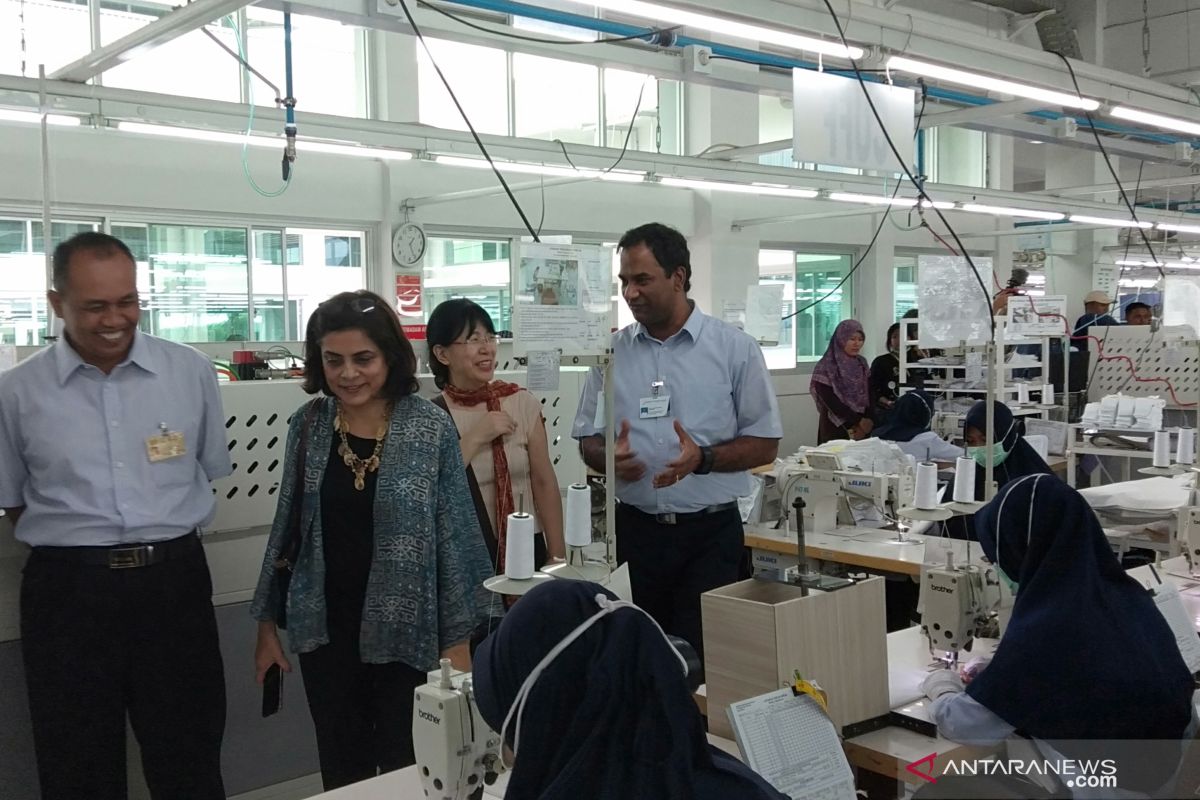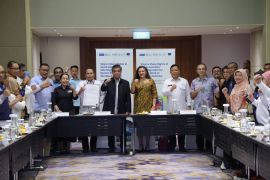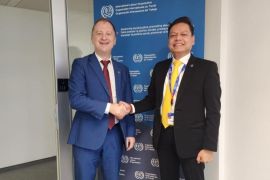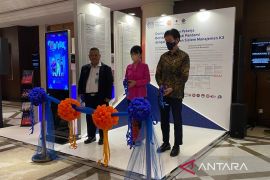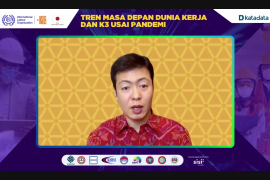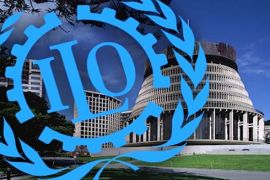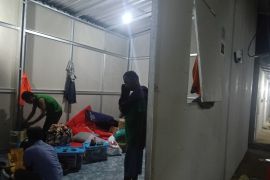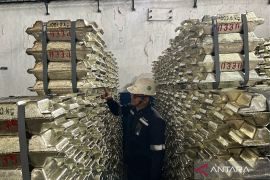Indonesia identifies this sector as being job rich and a driver for inclusive growth for which it is intent on expanding this sector.
Despite rapid economic growth in this sector, industrial relations in Indonesia are often impacted by several issues, at both the employer and worker levels.
Employers in garment industries often encounter numerous challenges in integrating labor standards into the production process as part of their accountability in a bid to achieve a feasible business.
In the meantime, workers deal with issues, ranging from job insecurity, short-term employment contracts, and social security, to name a few.
Hence, to boost development of the garment industry in Indonesia, while assisting businesses, one of the Busana Apparel Group business units, Ungaran Sari Garments, has collaborated with the ILO-Better Work Indonesia programme for the empowerment of women workers.
Over 95 percent of the employees constitute women and their empowerment is one of the company's key focus areas, which was initiated through the HER Project program since 2014.
The company runs several social and community programs for the employees and their families.
Programs for women in Ungaran Sari Garments, named HER Project, encompasses maternity programs, environmental programs, and post maternity programs.
Senior HR And Compliance of PT Ungaran Sari Garments Arif remarked that various women's empowerment programs, run by the company, were driven by genuine concern for employees.
"This is since 95 percent of our workers are women. Hence, we must be sensitive to their health, so as not to affect production. Women are empowered through the holding of prenatal class, courier of breast milk (ASI), capacity building, and so on," he revealed.
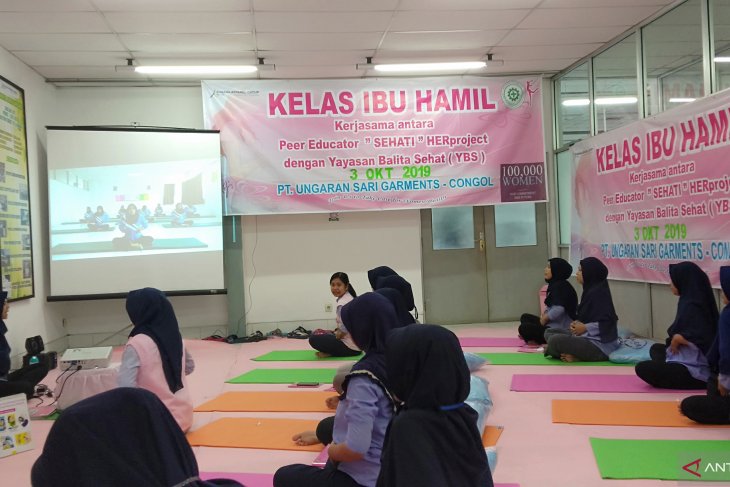
Arif explained that ASI was initiated after taking into account the difficulties encountered by employees in offering exclusive breastfeeding to their infants.
"After three months of maternity leave, the female employees returned to work. The stock of ASI for their babies at home apparently did not suffice, so it is impossible for the babies to get exclusive breastfeeding while their mothers are working," Arif pointed out.
Moreover, women workers approached the company's management to echo their concerns, and following a discussion, a solution was agreed upon through the approach of ASI.
"For the time being, our drivers can handle the delivery of ASI to the homes of women. There are two drivers, who deliver ASI to the homes of women workers," Arif explained.
Furthermore, the company has conducted family care day that is one of the most highly anticipated events for employees in Ungaran Sari Garments. It aims to increase engagement among employees and deepen relations between employees and the company.
Over five thousand employees and their families enthusiastically participated in this event.
HERProject Peer Educators also seized this opportunity to promote a healthy lifestyle by offering free medical check-ups, healthy infant food, and reflexology for all participants.
In addition, Peer Educators rewarded 15 female employees for successfully offering exclusive breastfeeding to their infants for six months.
"At the same time, we also contributed to environmental preservation by planting herb seeds and releasing fish seedlings into a surrounding river. To enliven the event, the participants were treated to many door prizes," Arif remarked.
The company also conducted health socialization among women workers at lunchtime in the factory canteen.
To increase the level of knowledge and hone the skills of the marketing staff, Ungaran Sari Garments organizes training on every Saturday that encompasses several topics including merchandising flow, sewing machines, basics of sewing operations, basic of fabrics, woman’s health, and communications.
Arif affirmed that the women's empowerment program had a positive impact on the company.
"Employees become healthy, and absenteeism reduces. As a result, the workers' productivity increases. The company performance then also improves. I do not think that the effort has become a burden on the company, but it is an investment," Arif stated.
Better work program
UN Resident Coordinator in Indonesia Anita Nirody lauded the empowerment of women carried out by Ungaran Sari Garments, a garment company based in Ungaran, Semarang, Central Java.
"Various programs to empower women are carried out by the garment company, including prenatal class, courier of breast milk (ASI), lactation rooms, cooperatives, clinics, as well as capacity building for workers," Nirody noted on the sidelines of a visit to Ungaran Sari Garments, Ungaran, Semarang, Central Java, some time ago.
Empowering women in the garment company holds significance since they constitute 95 percent of the workforce.
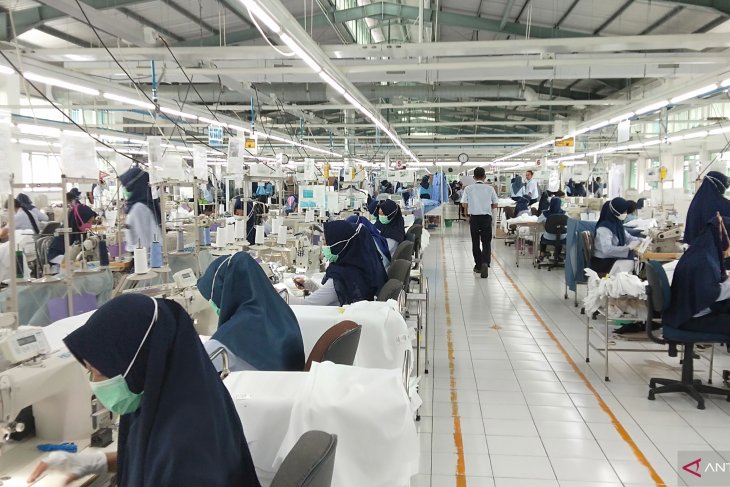
Nirody expounded that the fundamental premise of the Better Work programme is that improving working conditions in garment factories will advance well-being and boost competitiveness, profitability, and productivity of garment enterprises.
The programme recognizes that when it comes to poverty reduction, inclusive growth, and sustainable development, the quality of jobs holds as much importance as the quantity and that a gender-equal workplace is critical for business productivity, according to Nirody.
Nirody highlighted that the Better Work programme represented a unique partnership at several different levels.
At the global level, partnership between the International Labour Organization (ILO) and the International Finance Corporation (IFC) entails combining the expertise of ILO in labour standards with that of the IFC in private sector development.
Moreover, at the global level, the Better Work programme has partnership with 37 global companies and brands across nine countries, Nirody remarked.
At the country level, partnerships are with relevant national and provincial government authorities, while at the factory level, partnerships are between the management, workers, and trade unions -- 216 factories across five provinces in Java, Indonesia, with close to 400 thousand workers, of which 80 percent are women.
The programme has an interesting funding model – a combination of contributions from ILO’s global programme, grants from donors, contributions from global brands and fees for services provided by the factories.
The programme works at varied levels – at the policy/macro levels through policy advice and technical assistance to influence important legislation related to, for instance, social security, wages, etc.
At the micro or factory level, the programme conducts assessments to review compliance with labour laws and provides tools, training, and capacity development to empower women, end discrimination at workplace, and promote social dialogue among key stakeholders.
The programme has achieved key outcomes and results as is apparent from increased job stability and well-being; better working conditions, including better access to maternal, reproductive, and healthcare services; and an increase in productivity and profits.
In addition, the programme has generated several spin-off or multiplier impacts, with creative, bottom-up solutions generated by the factories through social dialogue, such as improved maternal and health care, a breast-feeding facility and novel breastfeeding courier service to transport breast milk to children, and 90 percent of the children remaining in school due to improved well-being of families.
The programme contributes to multiple SDGs across the 2030 Agenda for Sustainable Development – Goal 8 related to Decent Work, but also Goals related to gender empowerment, health, nutrition, inequality, and partnerships, Nirody stated.
Programme sustainability has been taken into account through the creation of Yayasan (NGO), with 30 enterprise advisors, former Better Work employees, who offer technical advice and support to the participating factories.
Boosting dialogue
Country Director of ILO for Indonesia and Timor-Leste Michiko Miyamoto remarked that sound dialogue between the management, workers, and trade unions offered a solution to enhancing production and work productivity.
Miyamoto echoed the ILO’s commitment to encouraging the management to promote dialogue between workers and employers.
"Employers and workers must strengthen social dialogue in companies to face current employment challenges," she noted.
This is especially pertinent in the era of the fourth industrial revolution that had an impact on industrial relations between workers and employers.
"If there is an issue, it will be discussed together for overcoming the problem encountered in industrial relations. Thus, the problems between employers and workers can be overcome properly," Miyamoto stated.
She believes that social dialogue will facilitate employers and workers to tackle different employment challenges and advance the company.
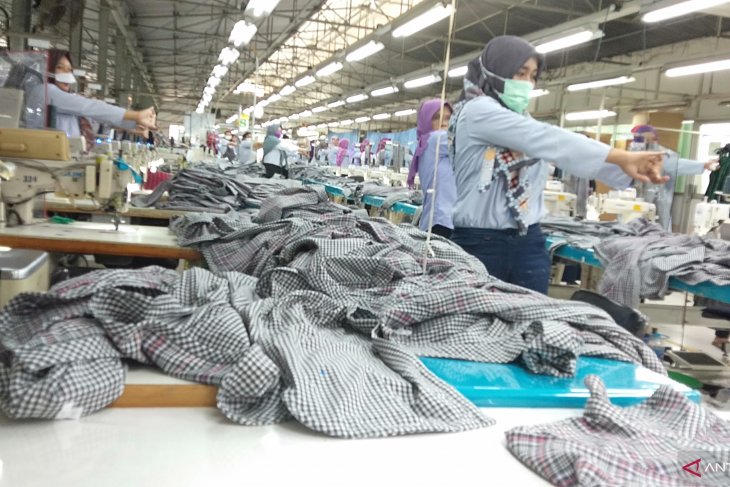
The garment company has put up suggestion boxes in toilets and canteens and holds weekly discussion or discussion through Whatsapp.
Miyamoto believes that Ungaran Sari Garments' efforts should be emulated by other companies.
Related news: Realizing dignified world of work through ILO Convention No. 190
Related news: Domestic workers are often invisible: ILO
Editor: Sri Haryati
Copyright © ANTARA 2019
